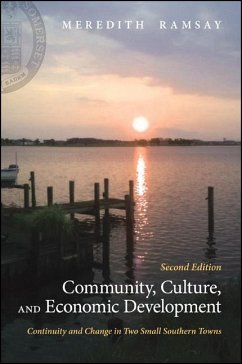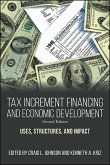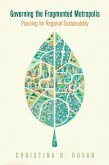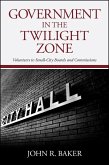Community economic development is conventionally explained using one of two models: a market model that assumes individuals always attempt to maximize their wealth, or a growth model that assumes land use is controlled by real estate developers who invariably pursue outside investment as a way of increasing land values and creating jobs and opportunities. In the first edition of Community, Culture, and Economic Development, Meredith Ramsay's close study of two small towns on Maryland's Lower Shore demonstrated that neither model can explain why these communities, alike in so many ways, responded so differently to economic decline or why archaic hierarchies of race, class, and gender remain deeply embedded and poverty seems nearly intractable. Ramsay showed how the lack of economic progress in Somerset, Maryland's poorest county, can best be explained by factoring history, culture, and social relations into the investigator's research. In this second edition she discusses changes that have taken place in the county since the early 1990s, including the dramatic legal victory of the "Somerset Six" and the Maryland ACLU, which ultimately paved the way for the election of an African American to a top county position for the first time in history.
Dieser Download kann aus rechtlichen Gründen nur mit Rechnungsadresse in A, D ausgeliefert werden.









